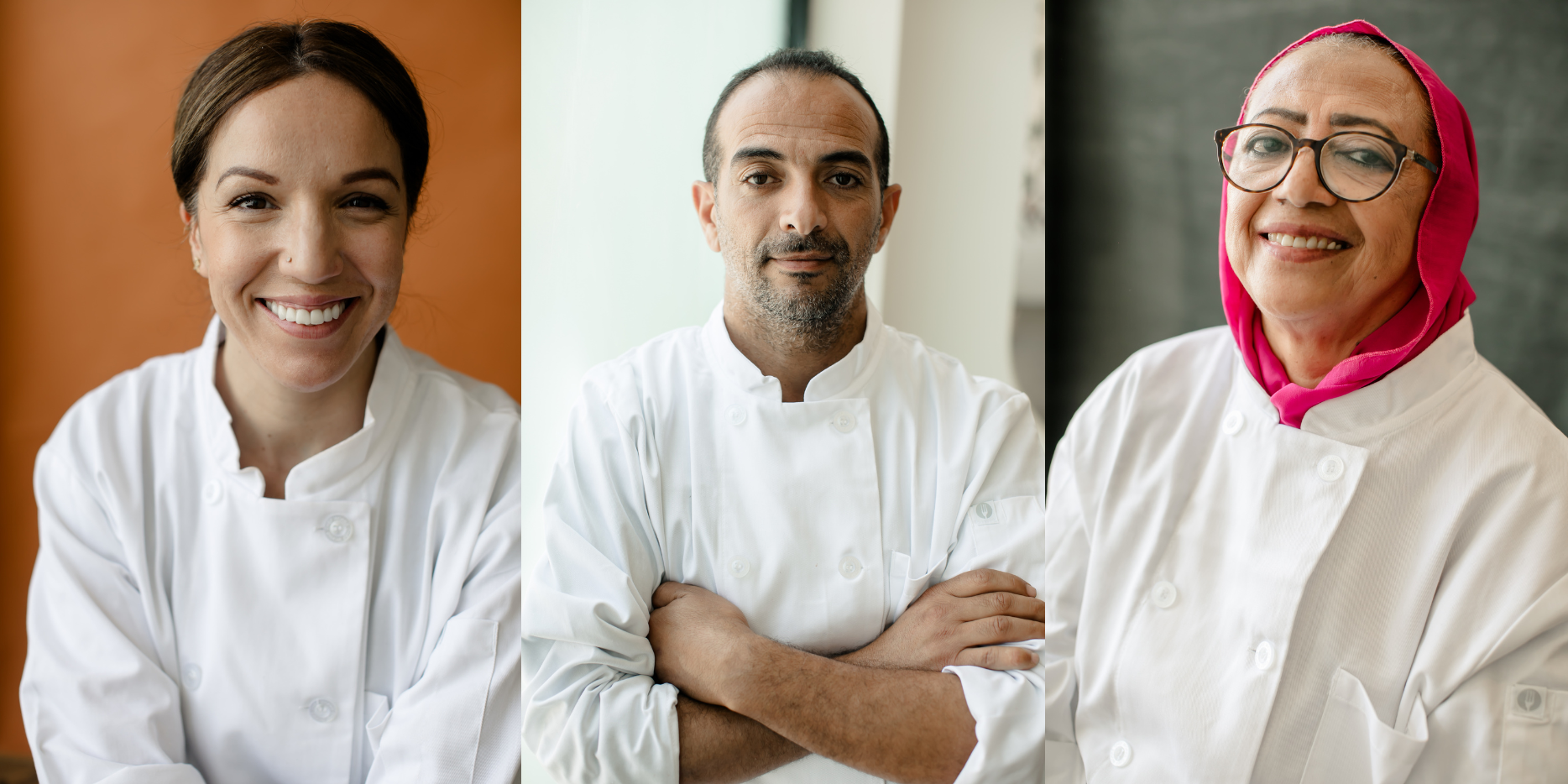
reasonstobecheerful.world
This LA Restaurant Serves Up Empowerment for Refugees
Jamie Lauren makes five-star cooking look easy. With a trained hand, the chef adds two eggs and olive oil to the flour, kneads the pasta dough into a pliable ball and shows it to her eager trainees: “Touch it! You must feel it!”
Lauren is the culinary producer for the popular cooking show Top Chef, but today in the shining stainless steel kitchen on Hollywood Boulevard, she is training an unusual group of aspiring chefs: Montassar Dhaouadi, a passionate amateur cook from Tunisia; Eglal Abdelhalim, a retired diplomat for the African Union from Sudan who holds a doctorate in political science and dreams of opening her own restaurant; and Nouel HadjArab, who owned a bakery in Algeria and is a trained pâtissier.
The three trainees have come to the kitchen of the Hollywood restaurant Flavors From Afar not only to learn knife skills and make a tasty rosemary-ricotta filling for handmade ravioli, but so much more: At the end of the eight-week course, they will leave with a culinary training certificate, professional headshots, a presentable résumé, ideas for a complete menu and invaluable connections to the restaurant industry. This restaurant serves empowerment for refugees as the main dish.
From left: Nouel HadjArab, Montassar Dhaouadi and Eglal Abdelhalim. Credit: Jacqueline Patton Photography
“Everybody needs to eat,” says Maymuna Hussein-Cattan, the founder of Flavors From Afar. “I want to help refugees find jobs but at the same time highlight their strengths and culture, celebrate their experiences and demystify stigma. You always hear about a refugee crisis, but most people never learn the real story of the people behind the news.”
By working with rotating chefs from more than a dozen countries, Flavors From Afar offers more than authentic Somali sambusas, Lebanese ouze or Eritrean makleel (donuts). It provides a unique way to foster community while showcasing the skills and complex life stories of the people in the kitchen. One chef, for instance, highlights dishes from all eight countries she was forced to flee to on her escape from Congo. “We believe that those who survived displacement are the true alchemists who can create life after loss,” Hussein-Cattan says. “Surviving tragedies should be celebrated, and we are changing the narrative.”
Hussein-Cattan knows these complexities only too well because she was born in a Somali refugee camp. Her mother, Owliya Dima, had fled Ethiopia and spent 12 years in the refugee camp, where she gave birth to Hussein-Cattan. After they emigrated to California in 1984, Hussein-Cattan completed a master’s degree in developmental organization and wanted to give back to fellow refugees. Her family home was always full of new immigrants whom they were trying to help integrate into American society, and one of the most difficult challenges was finding jobs. Together, Dima and Hussein-Cattan started Tiyya Foundation in 2010, a grassroots effort to help refugees with anything from food to job search. Tiyya means “my love” in her native Oromo, and Hussein-Cattan now runs it with her husband, Shukry Cattan.










